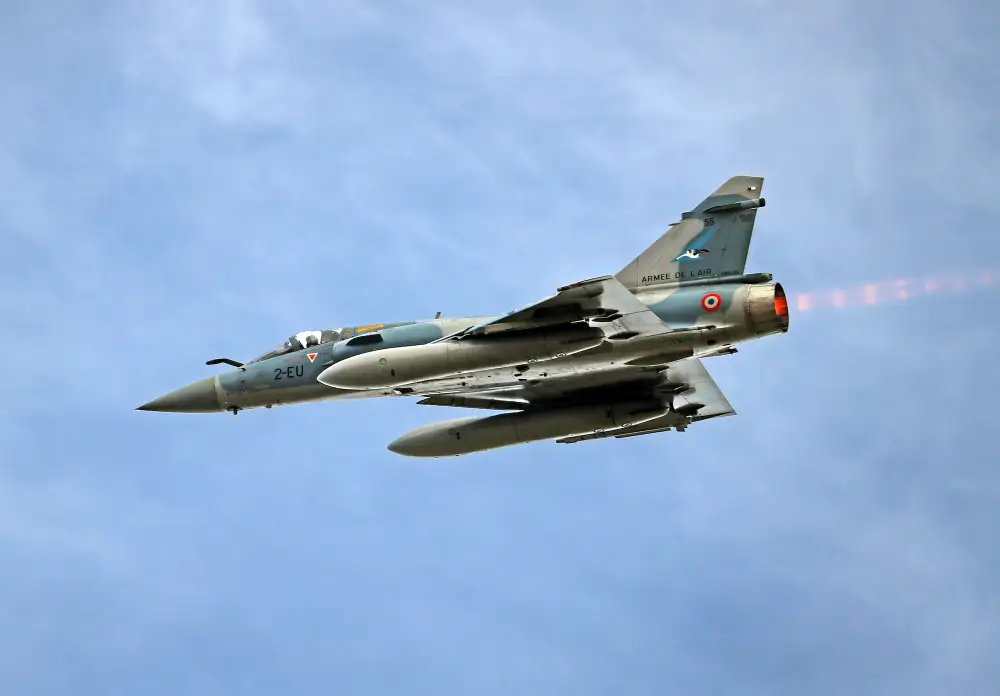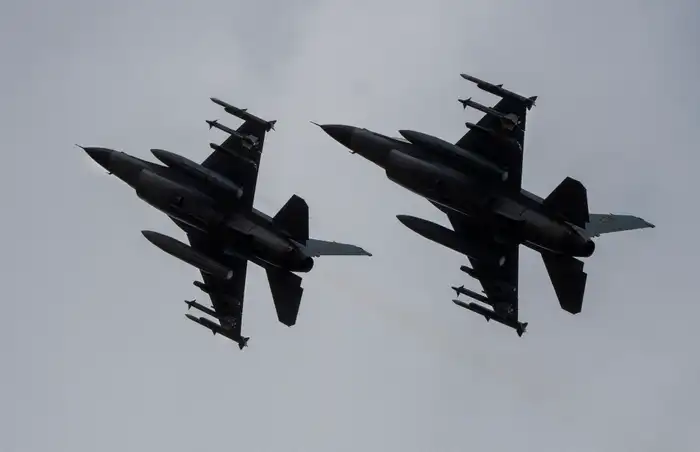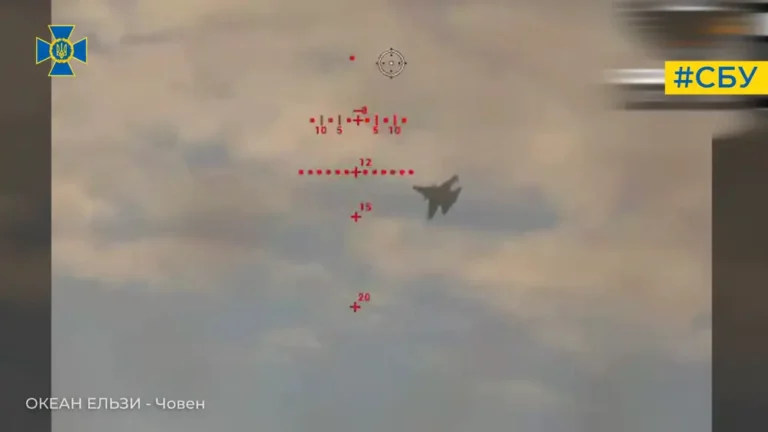New French Mirage fighter jets could help Ukraine skirt one of the biggest roadblocks for the F-16 program

A Mirage 2000-5F aircraft of the French air force in September.
France’s plan for getting Ukraine new Western fighter jets could help it skirt a big issue facing the F-16 program.
France is giving Ukraine Mirage jets, and once they arrive, they’ll be the second Western aircraft type that Ukraine has received, after the American-made F-16, since Russia launched its full-scale invasion in February 2022.
Part of France’s pledge includes a promise to train Ukrainian pilots on the jets, which is good news for Ukraine given the persistent delays in Western programs designed to train its pilots on F-16s.
France’s armed-forces minister, Sébastien Lecornu, said the jets would be equipped for the fight in Ukraine, “but most important of all is the training of pilots and mechanics, which continues in Nancy.”
Retired US Army Maj. Gen. Gordon “Skip” Davis, who served as NATO’s deputy assistant secretary-general for its defense-investment division, told B-17: “The fact that France is willing to provide both the jets and train the pilots, that’s great. That’s key.”
F-16 training struggles
Ukrainian pilots are being trained in the US, Denmark, and Romania on Lockheed Martin-manufactured F-16s. But the new program has faced setbacks. Politico reported in June that Ukraine’s allies didn’t have the number of training spaces Ukraine wanted for its pilots.
And to further complicate things, another delay in getting more trained pilots in the air seems to have arisen.
The Wall Street Journal reported last month that the US was shifting its training to younger, less-experienced cadets, largely because experienced pilots typically lacked the necessary English-language skills to do the training. That decision could delay the arrival of more F-16s on the battlefield by months, the report said.
Ukrainian President Volodymyr Zelenskyy in front of a Ukrainian air force F-16 fighter jet in an undisclosed location in Ukraine.
Ukraine has received only 10 F-16s so far, as the Ukrainian outlet Pravda reported, and it has already lost at least one. So few aircraft are helpful for augmenting Ukrainian air defenses but not enough to make a substantial impact.
France’s offer to train pilots for a different jet type, even if it’s for only a small number of aircraft, is helpful, military experts explained to B-17.
Davis said it was a “big deal” that France was providing training “because training is a bit of a bottleneck for the F-16s.”
Michael Bohnert, an air-warfare expert at the RAND Corporation, said that when it comes to Ukraine getting Mirage aircraft, “a big advantage” is that “the French have their training pipeline, so they’re able to run an independent set of training relative to what’s happening in the US or elsewhere.”
George Barros, a warfare expert at the Institute for the Study of War, said the US had “a big training bottleneck when it comes to getting pilots qualified.”
“Any sort of augmentation and training bandwidth that partners and allies can provide to help alleviate that critical rate determiner is going to really help expedite Ukraine’s ability to become proficient in operating in that air domain,” he said.
That’s “not to undersell the importance of the actual hardware and equipment itself,” Barros said, “but no one really talks about training.” He added that “you could have as many airframes as you want, but if you don’t have the qualified pilots who know how to do it correctly, then you don’t have a capability.”
Ukraine’s future
Lecornu said in October that his country intended to send Mirage 2000 jets manufactured by Dassault Aviation in the first half of 2025. But the jets aren’t set to arrive in large numbers. The French newspaper La Tribune reported that only three would be delivered in the first quarter of next year.
France hasn’t officially confirmed how many will arrive in the first tranche or how many it will send in total. It’s also unclear when pilots will complete their training and Mirage aircraft will be able to join Ukraine’s F-16s in the air.

F-16 fighter jets of the Ukrainian air force in an undisclosed location in Ukraine.
But having a new jet to fly alongside the F-16s and its Soviet-designed aircraft isn’t without its challenges.
“It would be ideal if they would just operate one thing, but now they have to operate three things,” Tim Robinson, a military-aviation specialist at the UK’s Royal Aeronautical Society, said.
“Ideally, you don’t have to support three different types of fixed-wing aircraft,” he said. “But beggars can’t be choosers, and at the end of the day, more capability is better than no capability.”
Bohnert gave a similar assessment. “One problem is they’re just trying to stand up their F-16 infrastructure. So, adding another plane that is relatively different in its supply chain will pose some logistical challenges. But from a force perspective, it’s a positive improvement,” he said.
Ukraine has notably proven itself to be very adept at mixing combat technologies from many different partners, be it artillery, tanks, missiles, or aircraft.
Davis said the Mirage would be “added value” for Ukraine, though he said allies should have made the decision earlier so they could be flying and helping Ukraine now.
Ukraine definitely needs more jets. Even if all the F-16s the country has been promised arrive — the more than 85 jets promised by Norway, Belgium, the Netherlands, and Denmark — that’s not enough to make a big difference, warfare experts say. Even Ukrainian President Volodymyr Zelenskyy has said that it’s not enough and that the issues are the same ones it ran into with the Abrams tanks.
And the F-16, while a capable, combat-proven aircraft, is 50 years old. These aircraft are not peak warfighting capabilities, and they arrived long after Ukraine really needed them, giving Russia time to prepare for their arrival. More capability is welcomed.
The Mirages are good for Ukraine, Robinson said, and “obviously more of everything is great.”






